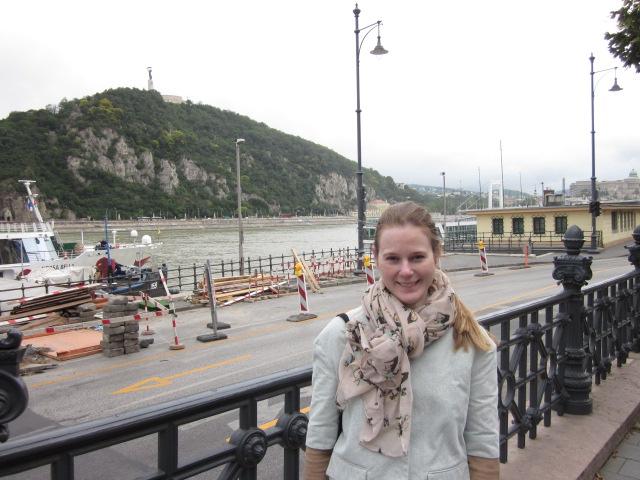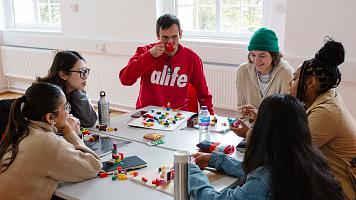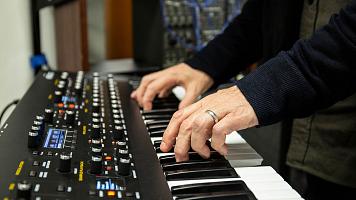MA
Events & Experience Management
Content navigation menu
Why study MA Events & Experience Management at Goldsmiths
Events managers of the future need to be versatile and confident, managing a wide array of events in innovative ways. This degree equips you to take your place in the events industry, leading the way in events and experience management for the fast-paced creative and cultural industries.
- From immersive theatre performances to pop-up gigs, there is an increasing demand for events management skills and knowledge to bring these projects to life. The MA Events and Experience Management at Goldsmiths is a truly unique course that will focus on creative and cultural industry events experiences. Combining theoretical knowledge and practical experience, this degree is specifically aimed at enabling you to run creative events in this constantly changing environment.
- The MA Events and Experience Management at Goldsmiths is rare in its close links with the creative and cultural industries, and offering modules across multiple departments. This approach will allow anyone wishing to pursue a career in the cultural and creative industries to gain valuable and cutting edge experience and knowledge.
- You’ll benefit from close connections to the events industry throughout your time at Goldsmiths, from opportunities for practical work experience to learning from the experiences and insight of our guest speakers. Practical experience is built into the content of the course, which allows you to apply your theoretical and strategic knowledge to real events, honing your planning, organisation and marketing skills.
- You’ll work with an arts organisation or events manager to put on an event that meets their needs, and there will also be opportunities to support the running of festivals like Wilderness.
Contact the department
If you have specific questions about the degree, contact Sara Linden.
Length
1 year full-time or 2 years part-time
Fees
Home - full-time: £12520
Home - part-time: £6260
International - full-time: £22640
Department
What you'll study
You'll take the following compulsory modules:
| Module title | Credits |
|---|---|
| Creativity, Events, and Eventfulness | 30 Credits |
| The Events Experience - Theory and Design | 30 credits |
| Festival Management | 30 Credits |
| Dissertation | 60 Credits |
Teaching style
Taught sessions and lectures provide overviews of themes, which students are encouraged to complement with intensive reading for presentation and discussion with peers at seminars.
Assessments build on lectures and seminars, so students are expected to attend all taught sessions to build knowledge and their own understanding of their chosen discipline.
What our students say


Careers
As a graduate from this degree you will be perfectly placed to enter the events industry as an events manager, particularly in the exciting creative and cultural sectors.
This could include:
- Working in an events role for a company or organisation
- Putting on your own events as part of marketing and branding your company
- Running events to promote and support your artistic practice
Skills
On the programme you will develop your skills in critical thinking, teamwork, and project design and implementation. These are transferable skills that are desirable across the public and private sectors.
In addition, practical elements are incorporated into some of the modules, which means that you gain valuable industry experience as part of the curriculum. For example: students will take part in workshops led by industry practitioners, pitch event ideas as part of the assessment programme, and receive practical learning opportunities through study visits and/or field work.
You will also, through our close links with events professionals and organisations, get the opportunity to widen your contacts and improve your networking skills.
Entry requirements
You should normally have (or expect to be awarded) the following qualifications:
- An undergraduate degree of at least upper second class standard
You might also be considered for some programmes if you aren’t a graduate or your degree is in an unrelated field, but have relevant experience and can show that you have the ability to work at postgraduate level. We consider all aspects of your application when making a decision and may still be able to offer a place even if your qualifications or grades do not meet the published requirements.
International qualifications
We accept a wide range of international qualifications. Find out more about the qualifications we accept from around the world.
If English isn’t your first language, you will need an IELTS score (or equivalent English language qualification) of 6.5 with a 6.5 in writing and no element lower than 6.0 to study this programme. If you need assistance with your English language, we offer a range of courses that can help prepare you for postgraduate study.
Fees and funding
Annual tuition fees
These are the PG fees for students starting their programme in the 2024/2025 academic year.
- Home - full-time: £12520
- Home - part-time: £6260
- International - full-time: £22640
If your fees are not listed here, please check our postgraduate fees guidance or contact the Fees Office, who can also advise you about how to pay your fees.
It’s not currently possible for international students to study part-time under a student visa. If you think you might be eligible to study part-time while being on another visa type, please contact our Admissions Team for more information.
If you are looking to pay your fees please see our guide to making a payment.
Funding opportunities
Explore the Goldsmiths scholarships finder to find out what funding you may be eligible for.
If you are a UK student you may be eligible for a postgraduate loan.
Meanwhile our Careers Service can also offer advice on finding work during your studies.
Paying your fees
Find out about paying your tuition fees.
Additional costs
In addition to your tuition fees, you'll be responsible for any additional costs associated with your course, such as buying stationery and paying for photocopying. You can find out more about what you need to budget for on our study costs page.
There may also be specific additional costs associated with your programme. This can include things like paying for field trips or specialist materials for your assignments. Please check the programme specification for more information.
How to apply
You apply directly to Goldsmiths using our online application system.
To complete your application, you will need to have:
- Details of your academic qualifications
- The email address of your referee who we can request a reference from, or alternatively a copy of your academic reference
- Copies of your educational transcripts or certificates
- A personal statement
You'll be able to save your progress at any point and return to your application by logging in using your username/email and password.
Read our guide to applying for a postgraduate degree at Goldsmiths.






